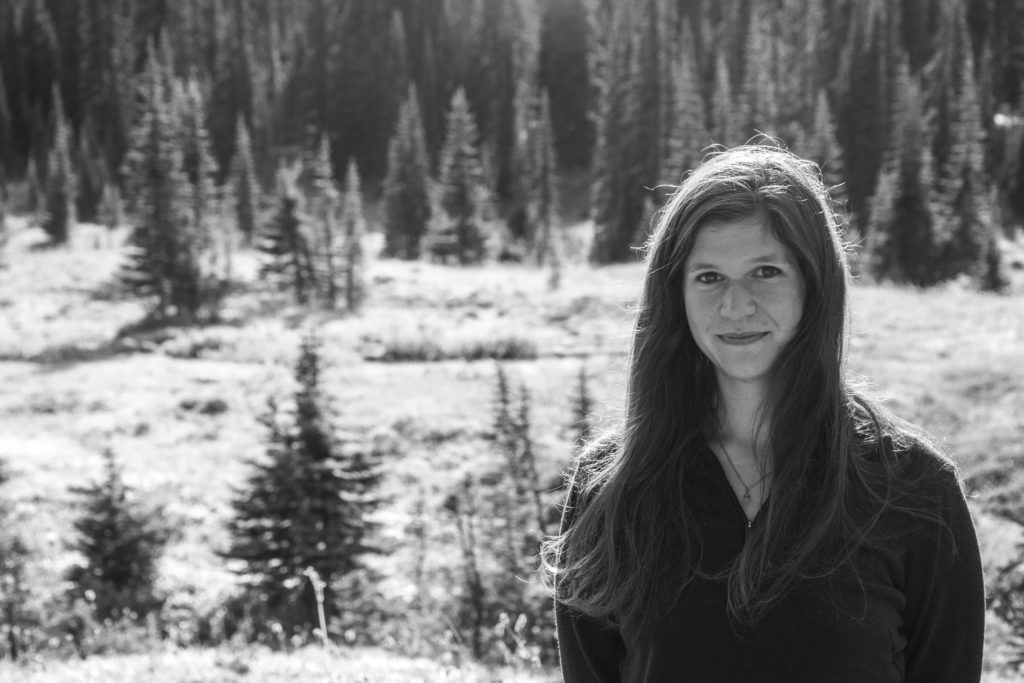From Our Authors | March 13, 2018

An Interview with Becky Mandelbaum
Lexi Wilkinson: The story is in ways a revenge story; Jackie, the protagonist, ultimately gets the better of her ex-boyfriend, Ellison, and even his dead wife, Gloria. Was there a relationship of yours that inspired the story?
Becky Mandelbaum: Not really, or at least not one relationship specifically. I’ve had my share of heartbreaks, and this story is, for me, an exploration of who and what we become when we’re alone and let our heartbreaks obsess us. The thing I find fascinating about Jackie is that despite how much she beats up on herself, she’s actually pretty good on her own—she finds ways to have fun, to entertain herself. But as soon as you insert anyone else into the situation, she starts to turn on herself. She becomes jealous and malicious, vengeful, self-deprecating. She’s still a touch strange on her own, but she’s kinder to herself. In this way, Jackie and I are similar. I think I’m at my moral highest when I’m alone—maybe this is true for everyone.
LW: The mountain-ranch setting of the piece is very well described: the mountains, the horses, the three-hour trek to Costco. Why did you choose this as the location for your story?
BM: I started writing this story while I was house-sitting for the writer Pam Houston, a close friend and mentor whom I met in grad school at UC Davis. Pam lives on a ranch in Creede, Colorado, which is essentially where I set this story. The ranch is one of the most dreamy, beautiful places I’ve ever been, but I spent a lot of time alone there and had ample time to explore the peculiarities of solitude. Some of Jackie’s behaviors are my own. I didn’t snoop through wedding cards or sleep with the farrier, but I did talk to inanimate objects and find myself ping-ponging between bursts of euphoria and restlessness. When the snow was thigh-high and I had no way to get my wiggles out, I too explored the world of online workout videos.
LW: There is a line where Jackie says, “You might be thinking I was lonely, but this is not the case.” What about this idea of isolation that isn’t loneliness? Is there truly a difference?
BM: There is a huge difference between isolation and loneliness. If isolation is a river then loneliness is a glacier—they’re made of the same element but possess entirely different forms. Loneliness can be a product of isolation (to go back to the water metaphor, it is what happens when we let isolation paralyze us), but it doesn’t have to be. Anyone who has spent extended time alone knows that isolation can induce a range of other emotions, many of them positive: serenity, clarity, joy, bravery, humor, playfulness, curiosity, gratitude, kindness.
I think, as a species, we’ve become afraid of solitude—afraid of the discomfort, the boredom, the task of keeping ourselves company. Social media plays a big part in this. We’re spending less and less time with the discomfort of solitude, a discomfort that can grow into something productive if we let it. Don’t get me wrong, I’ve experienced my fair share of loneliness, but it’s usually sharpest when I’m not actually by myself. That’s part of what I wanted to express with this story. We often feel lonely because we have given others permission to make us feel that way. When we avoid solitude altogether, we sacrifice opportunities for personal growth.
LW: In the story, you play with the idea of identity. Can you say more about why and how that became a primary theme of the story?
BM: In many ways, this story is an exploration of the relationship between identity and solitude. A lot of us grow up thinking our identity depends on the perceptions and judgements of others, that other people make us who we are. When you’re alone, you realize you have an identity that’s completely separate from other people. You learn things about yourself: how you like to spend your time, what you like to think about, what brings you joy or makes you uneasy or restless or sad. You learn how to entertain yourself and enjoy your own company. You can hear yourself better. Jackie’s on her way to understanding who she is, but she’s not quite there. The ranch is trying to teach her, but she’s not listening. She still has one ear pressed to the door of a world in which she finds her value from men. One day she’ll walk away, but not yet.
LW: Finally, what are you working on now?
BM: I’m working on a novel that takes place on an animal sanctuary in western Kansas.
SEE THE ISSUE
SUGGESTED CONTENT

Featured Prose
Mar 15 2024
An Interview with Genevieve Abravanel
Recently, TMR intern Shayla Malone interviewed Genevieve Abravanel about “Wilderness Survival,” which tells the story of a recently widowed mom and her young daughter, who becomes an avid follower of a… read more

From Our Authors
Oct 06 2023
An Interview with Alexander Ramirez
Recently, TMR intern Michael Fegan interviewed Alexander Ramirez about his essay “On Defeat and Diego,” which was a runner-up for the 30th Annual Jeffrey E. Smith Editors’ Prize. Ramirez’s personal… read more

From Our Authors
Sep 22 2023
An Interview with Mona Susan Power
Recently, TMR interns Annalisa Geger and Kaitlyn Jensen interviewed Mona Susan Power about her story “Naming Ceremony,” which was a runner-up for the 2020 Jeffrey E. Smith Editors’ Prize. The… read more

